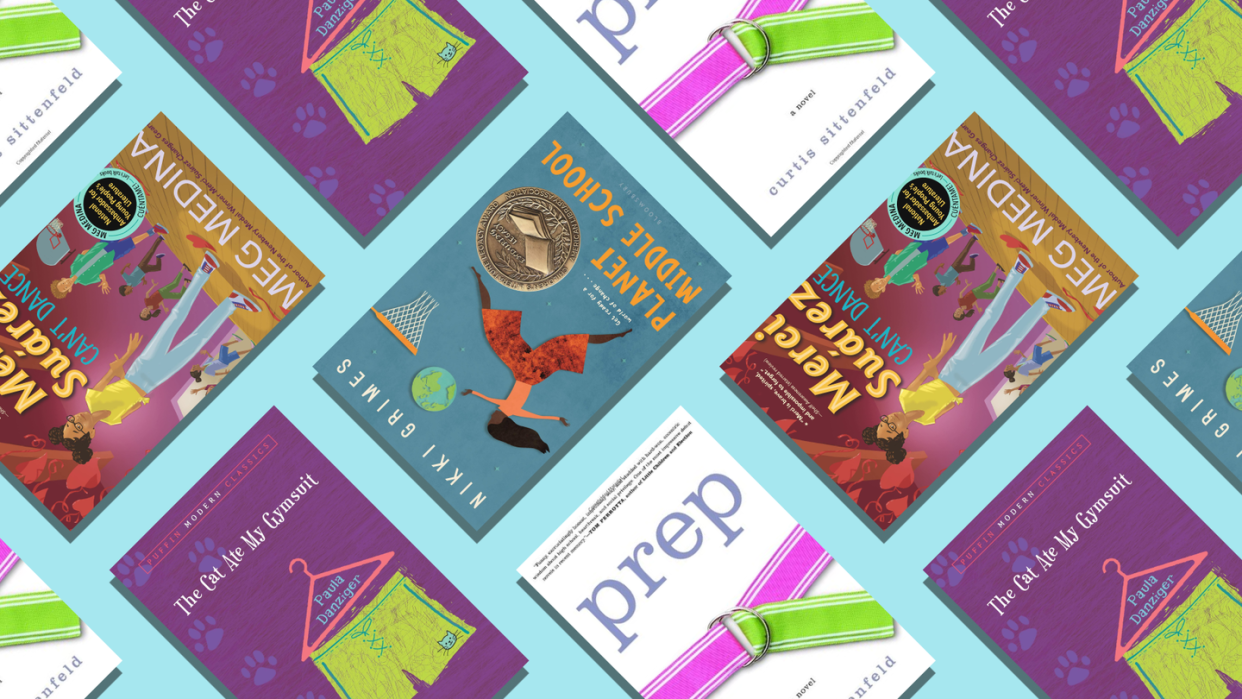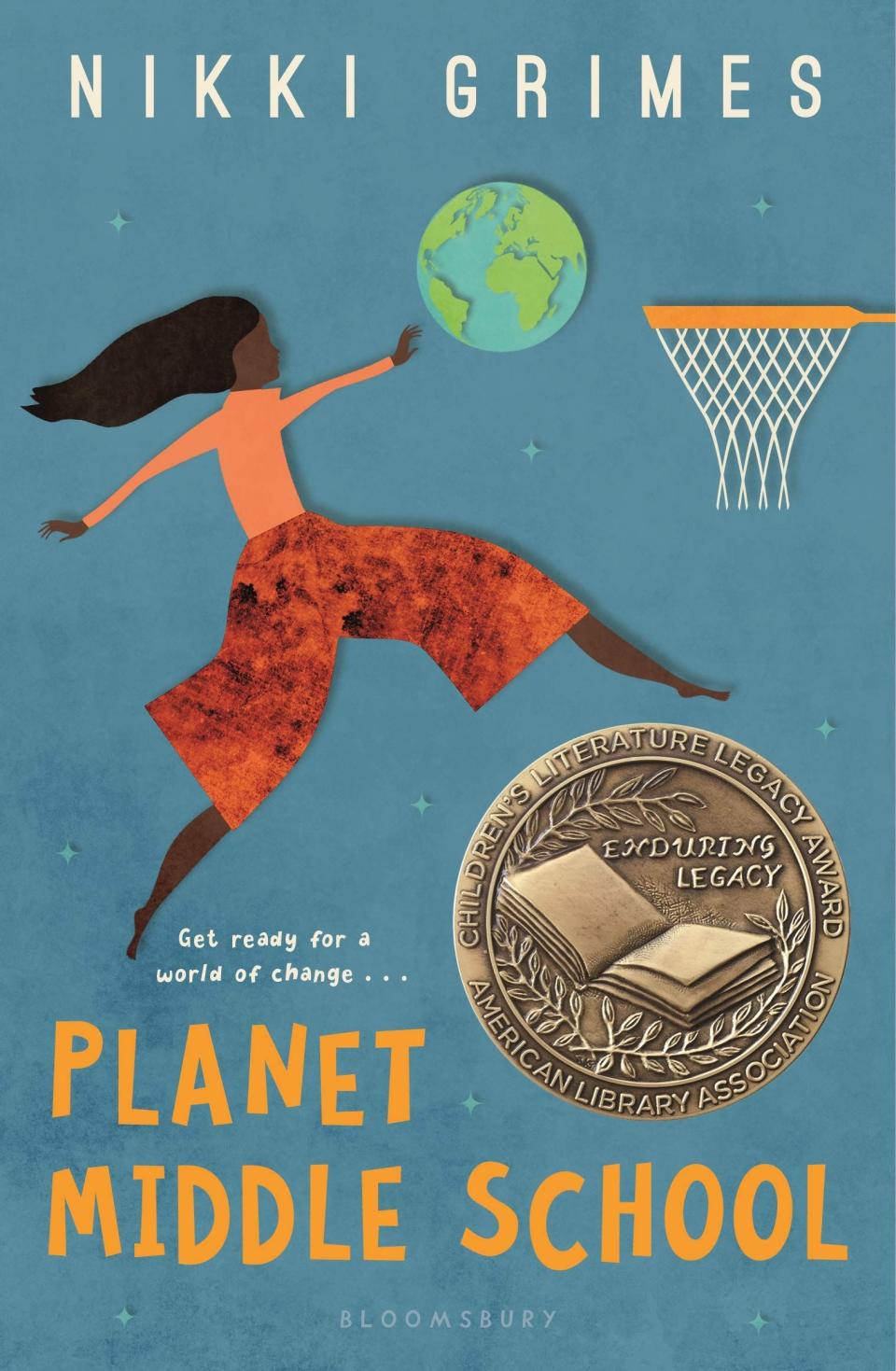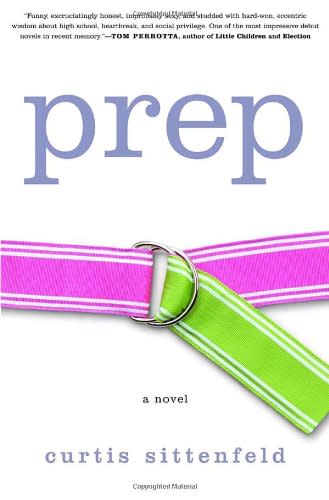The 7 Best Young Adult Books for Every Teenage Girl in Your Life

- Oops!Something went wrong.Please try again later.
- Oops!Something went wrong.Please try again later.
- Oops!Something went wrong.Please try again later.
"Hearst Magazines and Yahoo may earn commission or revenue on some items through these links."
There's something so intimate and reassuring while reading a novel about real girls living real lives (see: Judy Blume). It’s like sharing a secret with a best friend. These middle grade and YA books feature young female protagonists doing the all-too-confusing work of growing up—whether it's the awkwardness of being the new kid in school, the pain of family drama, or the complexity of forming one's own identity. From timeless classics to more contemporary gems, these books will help your tween and teen readers feel seen. And they’ll help adults remember what it felt like back then, too.
Planet Middle School, by Nikki Grimes
In this unassuming little gem of a book written in free verse, 12-year-old tomboy Joylin enters middle school, where everything that had formerly been safe and familiar—her two best friends, her confidence on the basketball court, her very own body—immediately spins out of control. “I swear, some days/ I feel like an alien,/ dropped off on Planet Middle School/ by mistake./ I keep scanning the skies,/ searching for that spaceship/ that’s gonna take me home.” Even the most reluctant readers will be hooked from the start, thanks to Joy’s relatable voice and Grimes’s simple, direct language, which speeds along. (The whole book is just 160 pages, and some of the chapters are just three lines long.) Joy’s family is loving and supportive, and the story never gets very dark or graphic, making it ideal for the youngest readers.

Planet Middle School, by Nikki Grimes
bookshop.org
The House on Mango Street, by Sandra Cisneros
Told in a series of short, interconnected vignettes, Cisneros’s acclaimed 1984 novel tells the story of Esperanza Cordero, a 12-year-old Chicano girl growing up in Chicago. “In English my name means hope,” she explains at the book's start. “In Spanish it means too many letters. It means sadness, it means waiting.” What really draws you into the story is Esperanza’s longing—for “a real house that would be ours for always so we wouldn’t have to move each year,” for a best friend “who will understand my jokes without my having to explain them,” and for adult knowledge like that of Marin, an older girl with pretty eyes who smokes and wears short skirts. Then, there is the danger. In Esperanza’s neighborhood, safety is not a given, especially when it comes to older men who prey upon young girls. Miraculously, Cisneros manages to channel these harsh truths while also delivering a story that delivers—yes—hope.

The House on Mango Street, by Sandra Cisneros
bookshop.org
My Perfect Life, by Lynda Barry
“The new thing at my school is for you to be yourself. I don’t get what that is even supposed to mean… What do you do in case yourself really sucks?” So asks freckled, myopically challenged middle-schooler Maybonne Mullen of her own reflection in the mirror, one of a series of honest, funny, sad, deep, and daffy confessions in cartoonist Barry’s collection. Collected from her iconic strip Ernie Pook’s Comeek, the collection focuses on Maybonne, the self-doubting and sensitive older sister of exuberant Marlys, over one rocky year. Maybonne experiences bullying, a “cruddy” first boyfriend, family drama, drinking, and suicidal thoughts. Though Barry never shies away from the darkness in Maybonne’s life, the cartoons are full of life, vigor, off-kilter humor, and luminescent humanity. Barry’s bold all-caps hand lettering and wonky black-and-white drawings go straight to your heart. The total picture of Maybonne’s intense year is one of the most unforgettable and unflinchingly real portrayals of adolescence ever published.

My Perfect Life, by Lynda Barry
amazon.com
Hearst OwnedThe Cat Ate My Gymsuit, by Paula Danziger
First published in 1974, Danziger’s coming-of-age novel is as resonant as ever, even for kids who have never seen a gymsuit. The story is told by Marcy Lewis, a ninth grader who sees herself as a flat-chested “fat blimp” with no real friends. (The title refers to the fact that Marcy, too embarrassed to change into the school’s gym uniform, comes up with a series of excuses to get out of P.E.) At home, meanwhile, her father’s drinking and verbal abuse keep her entire family in a constant state of anxiety. The only bright spot in Marcy’s life is Ms. Finney, a young, cool English teacher whose progressive approach helps her students understand they have agency in their lives. When Ms. Finney gets fired, Marcy joins the fight to bring her back in a local culture war that eerily echoes the divisiveness of America in 2023. Marcy’s self-awareness of her privileged place in the world also feels impressively current. “I know I’m not poor,” she says at one point. “Nobody beats me. I have clothes to wear, my own room, a stereo, a TV, and a push-button phone. Sometimes I feel guilty being so miserable, but middle-class kids have problems too.”

The Cat Ate My Gymsuit, by Paula Danziger
amazon.com
Prep, by Curtis Sittenfeld
Sittenfeld’s 2005 debut, which straddles the line between YA and adult (it’s often shelved in both categories) has been called a modern counterpart to The Catcher in the Rye. It’s a lofty comparison but not such a stretch—girls, especially, may find more of a soulmate in hyper-observant 14-year-old Lee Fiora than in that poster boy of adolescent alienation, Holden Caulfield. A book-smart middle-class girl from Indiana, Lee arrives as a scholarship student at a prestigious New England boarding school with vague fantasies of transforming herself into an upper-class prepster with a lacrosse-playing boyfriend. She is in for a rude awakening. Lee finds herself undistinguished in academics, connections, and charisma, and above all, she is utterly baffled by the school’s class-bound social codes. Every day brings another humiliation, from conversational faux pas to a hookup with a boy who seems way out of her league. As she puts it, “I believed then that if you had a good encounter with a person, it was best not to see them again for as long as possible.” Hilarious, heartbreaking, and excruciating, this is a novel that improves upon rereading, even decades after adolescence.

Prep, by Curtis Sittenfeld
amazon.com
Merci Suárez Can't Dance, by Meg Medina
In this follow-up to the Newberry Medal-winning Merci Suárez Changes Gears, Medina’s sharply observant and self-aware Cuban American protagonist is now in 7th grade and dreading the big-deal event at school, the Heart Ball. As Merci puts it, “Dancing is just not my jam, at least not in public where people can see me flailing around like a fish dying on a deck.” Even worse, she knows that her peers are already starting to do icky things like kiss: “Just the thought of that gives me hives.” Merci is still more interested in stuff like her favorite sci-fi series, Iguanador Nation, and getting around her mother’s healthy food rules. But she’s surprised by how much she has in common with a boy named Wilson who works with her at the school store. Medina captures the befuddlement and annoyance girls like Merci feel when it seems like everyone around them starts to change. “In sixth grade, most of the boys were relatively normal, but not anymore,” she observes. “Now the lunch menu can’t list chicken breast sandwiches without them elbowing each other.”

Merci Suárez Can't Dance, by Meg Medina
amazon.com
Harbor Me, by Jacqueline Woodson
“We knew there was something different about us,” says the narrator, Haley. “We had all been in the big classrooms before, and our learning felt like a race we were losing.” Every Friday, a group of six Brooklyn middle schoolers, all with learning differences and unique challenges at home, are brought into a separate classroom for an hour to chat about their lives, without any adults listening in. Haley is reluctant to reveal her own complicated situation—she’s biracial and living with her white uncle because her mother is dead and her dad is in prison. But when she begins bringing a voice recorder to the ARTT Room (short for "A Room to Talk"), she and the others discover strength and empathy in each other’s stories. Woodson gives a voice to all six children to tell their stories, from Esteban’s dad’s deportation to Amari’s fears of racial profiling. Best of all, she demonstrates the bonds that form when kids take the time to listen to each other. If it sounds like the Brooklyn middle school version of The Breakfast Club, it actually kind of is—in the best way.

Harbor Me, by Jacqueline Woodson
bookshop.org
You Might Also Like

